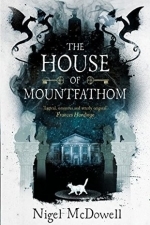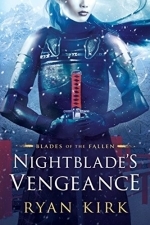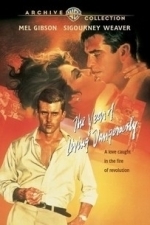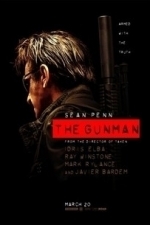Uptown Oracle (24 KP) rated The House of Mountfathom in Books
Jun 30, 2017
My favourite aspect was how alive the house felt as it was so full of magic. The House of Mountfathom seemed like another member of the family almost like it had a mind of it's own. There was so much time given to explaining the house, magic and family though, that it reduced the actual plot to the second half of the book.
The House of Mountfathom has a strong focus on family. The Mountfathom family are the protagonists of the book. The Order of Driochta are another kind of family. There's no romance subplot which was a big plus point for me.
Another thing was that the house was in Ireland. I cant think off the top of my head another book I've read based in Ireland. The introduction of both historical aspects and folklore was great. There's also a distinct discussion about class systems. The 'big houses' aka the upper class in Ireland are in trouble, including the Mountfathom house, even though they're trying to keep the peace.
A problem I had was the format seemed odd, I assume it would be best in a printed book. My kindle seemed to push everything together and it was difficult to discern between chapters. The illustrations would have also worked much better within a book. Since this was an e-ARC though, I wouldn't take that into account.
Another problem is the book doesn't seem quite finished. Understandable as Nigel McDowell passed away in February. Although the ambiguous ending does give something towards the mysterious aspect of the book as a whole.
I really enjoyed how McDowell described the hows of magic. The first part of the book follows Luke as he grows up and learns magic. The five principles are distinct in how Luke learns them. I would compare The House of Mountfathom to Lemony Snicket and Neil Gaiman's Coraline. It was a bit dark and creepy in places. Full of intrigue and magic.
Diamonds in the Rough: Corporate Paternalism and African Professionalism on the Mines of Colonial Angola, 1917-1975
Book
"This meticulous study is a must read for scholars and graduate students interested in African labor...
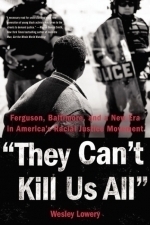
They Can't Kill Us All: The Story of Black Lives Matter
Book
'A devastating front-line account of the police killings and the young activism that sparked one of...
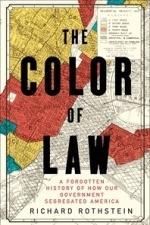
The Color of Law
Book
In this groundbreaking history of the modern American metropolis, Richard Rothstein, a leading...
History Politics
Innocent Traitor
Book
I am now a condemned traitor . . . I am to die when I have hardly begun to live. Historical...
Ross (3284 KP) rated Nightblade's Vengeance in Books
Oct 10, 2017
This summer I read the first Nightblade trilogy: I loved the first one (the world-building, the three different stories running in parallel and occasionally crossing over), enjoyed the second one (character development was the focus plus setting up the conflict in the conclusion) and tolerated the final book (largely a repeat of the same plot as the first two plus a number of loose ends left un-tied).
Given how I fell out of love with the series as it went on, I was a little tentative about reading this, the first in a new trilogy following on from the events of the first. I have to say it was very poor.
Pretty much nothing happens throughout the book, the sole focus is on political manoeuvring and the nightblades have become a shadow of what they were to be at the end of the first series.
The king is dying and has no heir, so one of three lords looks likely to be chosen to take the throne (or decide to take it). There is some unrest within the populace of the Kingdom towards nightblades (ninja-like warriors with a spidey-sense warning them of danger and allowing them to sense each other) - rumours are spreading that nightblades are demanding unreasonable payment for protection and are harming those they are supposed to be serving. And a particularly weak nightblade, the daughter of a dayblade (whose powers are used to heal rather than in combat) killed in service, by a mysterious warrior who subsequently vanished, is looking for vengeance (hence the title).
And that is pretty much it. The plot is very basic, the narrative takes an absolute age to cover what few events are happening and the vocabulary is pretty limited (I think at one point within three paragraphs about 6 things were said to have happened "in a moment" or "for a moment").
Twice in the book the phrase "to cut a long, boring story short" was used and I can't help but think Kirk was referring to what he himself should do.
I wasn't sure after ending the nightblade trilogy whether I would return to the world of the nightblades. Now I am certain I won't.
Phillip McSween (751 KP) rated The Year of Living Dangerously (1983) in Movies
Mar 9, 2020
Acting: 10
Beginning: 1
I won’t lie, I restarted this movie probably three times before I finally committed. It’s hard for a movie to bounce back for me when it gets off to such a sluggish start. The setup borders on painful in spots and it sets the tone for what is to come.
Characters: 6
Cinematography/Visuals: 10
One of the shining moments of the movie as it captures 60’s Indonesia beautifully. I was easily transported into the time period and the culture feeling right at home. I also appreciate how the romance between Hamilton and Jill Bryant (Sigourney Weaver) was captured by director Peter Weir. It felt both endearing and sincere.
Conflict: 6
Entertainment Value: 4
The movie was painfully dry. Outside of the romance, it was hard for anything else to really capture my attention. There were times where I thought things would pick up only to be let down again. Unfortunate as I was hoping for more.
Memorability: 4
It’s a struggle trying to remember anything that stood out in the film. While there were one or two things that got my attention, things were pretty drab for the most part. Sitting through this again would almost be like a brand new boring experience.
Pace: 3
Slower than a turtle, there were times where I begged for this movie to end. I kept holding out hope that things would take a turn. Alas…You can’t take too long to get to the point and be disinteresting. That’s a recipe for disaster.
Plot: 7
The story itself wasn’t bad at all, I just wish they could have found a way to make things more interesting. The lack of layers really made things fall short for me. A lot of unrealized potential here just left on the table.
Resolution: 10
Overall: 61
For more reasons than one, I just couldn’t get into The Year of Living Dangerously. “Hate” would be a strong word as there were glimpses of a solid movie…but I can’t say I liked it. Nor can I recommend it. There are a number of better 80’s classics out there.
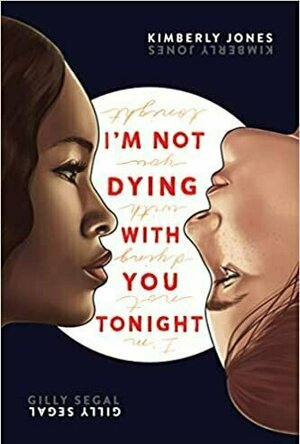
I'm Not Dying With You Tonight
Kimberly Jones and Gilly Segal
Book
"An absolute page turner, I'm Not Dying with You Tonight is a compelling and powerful novel that is...
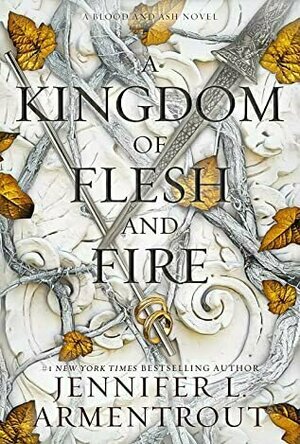
A Kingdom of Flesh and Fire (Blood and Ash #2)
Book
A Betrayal… Everything Poppy has ever believed in is a lie, including the man she was falling...
Gareth von Kallenbach (980 KP) rated The Gunman (2015) in Movies
Aug 6, 2019
Starring Sean Penn, Javier Bardem, Idris Elba, Jasmine Trinca, Ray Winstone, Peter Franzén, Mark Rylance, and based upon the 1981 book ‘The Prone Gunman’ by Jean-Patrick Manchette
‘The Gunman’ is set in the chaos that is modern Africa where civil unrest and war are day-to-day occurrences and western countries and multi-national conglomerates fight for control of the continent’s vital resources. Within this backdrop we find the character of Jim “Twink” Terrier (Penn). A corporate mercenary AKA security contractor on his last ‘assignment’ forced to leave
behind the woman he loves after going into hiding once his final assignment is complete. Now, years later after he has returned in secret to Africa he is forced go on the hunt again after nearly being killed and confront his former boss Felix (Bardem) who may or may not hold the key to finding those responsible. As in the world of espionage however, no one can be trusted. With corporate interests, international law enforcement, and his deteriorating health Terrier is racing against the clock to ensure that the world knows the whole story and perhaps find his long lost love before it’s too late.
Penn is obviously known for his dramatic roles. To say he is ‘legendary’ is pretty accurate.
After seeing this movie, I think it’s safe to say it’s likely we could see him in more action movies. The movie was a bit rough around the edges and perhaps 15 to 20 minutes longer than it needed to be. I felt like Bardem’s presence in the film was ‘wasted’. His character was quiet, spoke very little, and when they did give the character significant time in front of the camera he was drunk for most of it. Bardem has become legendary in his own right and I was hoping for a lot more for his character. The movie was NOT terrible though. One thing that impressed me was the fact that the filmmakers and the writers had the ‘guts’ to include mention of the type of thing that’s going on in Africa right now with corporations fighting for the continents resources and using the civil unrest to their advantage as part of the storyline.
All in all, I’d give the film 3 out of 5 stars. Catch the matinee or order it online. It’s not much when you compare it to something from the ‘Bourne’ or ‘Bond’ franchises. What you see in ‘The Gunman’ is the kind of action film that’s not outside the realm of possibility in real life.
On behalf of my fellows at ‘Skewed & Reviewed’ this is ‘The CameraMan’ saying thanks for reading … and we’ll see you at the movies.
Second Review by Jennifer Fiduccia
The Gunman, stars Sean Penn as James Terrier, Javier Bardem as Felix, Idris Elba as Barnes, Ray Winstone as Stanley, Mark Rylance as Cox and Jasmine Trinca as Annie.
The movie starts out by showing the men all working together as guards for a humanitarian effort in Congo but we are quickly led to believe that they might also be ‘up to something’
Annie is Jims’ fiancé, but it is overly obvious that Felix is jealous and wishes she were his.
Our beliefs become justified when we see the group of guys get orders to assassinate the Minister of Mining, and its a sort of blind draw as to who has to do the actual shooting. Whoever gets picked must then leave the country. It is revealed that that is how Felix wants it to be.
Terrier draws the short straw so to speak, and must carry out the assassination, and then flee the country.
The movie then skips ahead to 8 years later, and sees Jim once again helping a humanitarian effort in Africa, digging wells.
As he works, his group is suddenly attacked by a group of mercenaries, and Jim manages to fight them off and kill them.
He then begins to hunt down his old team mates in an attempt to try and figure out who tried to kill him and why.
The action in the movie is good, and fast paced, the stunts were well done. None of the stunts seemed ‘unbelievable’ given the circumstances they were put in.
The relationships between the characters could have been better fleshed out, and I was confused most of the way through the movie as to who was after Jim and why, but I guess that was intended in the plot.
Overall, if you are looking for a decent action film with a bunch of shooting and car chases, this will fit the bill.
I’d give the movie 3 out of 5 stars, specifically in the category of ‘action films’.
